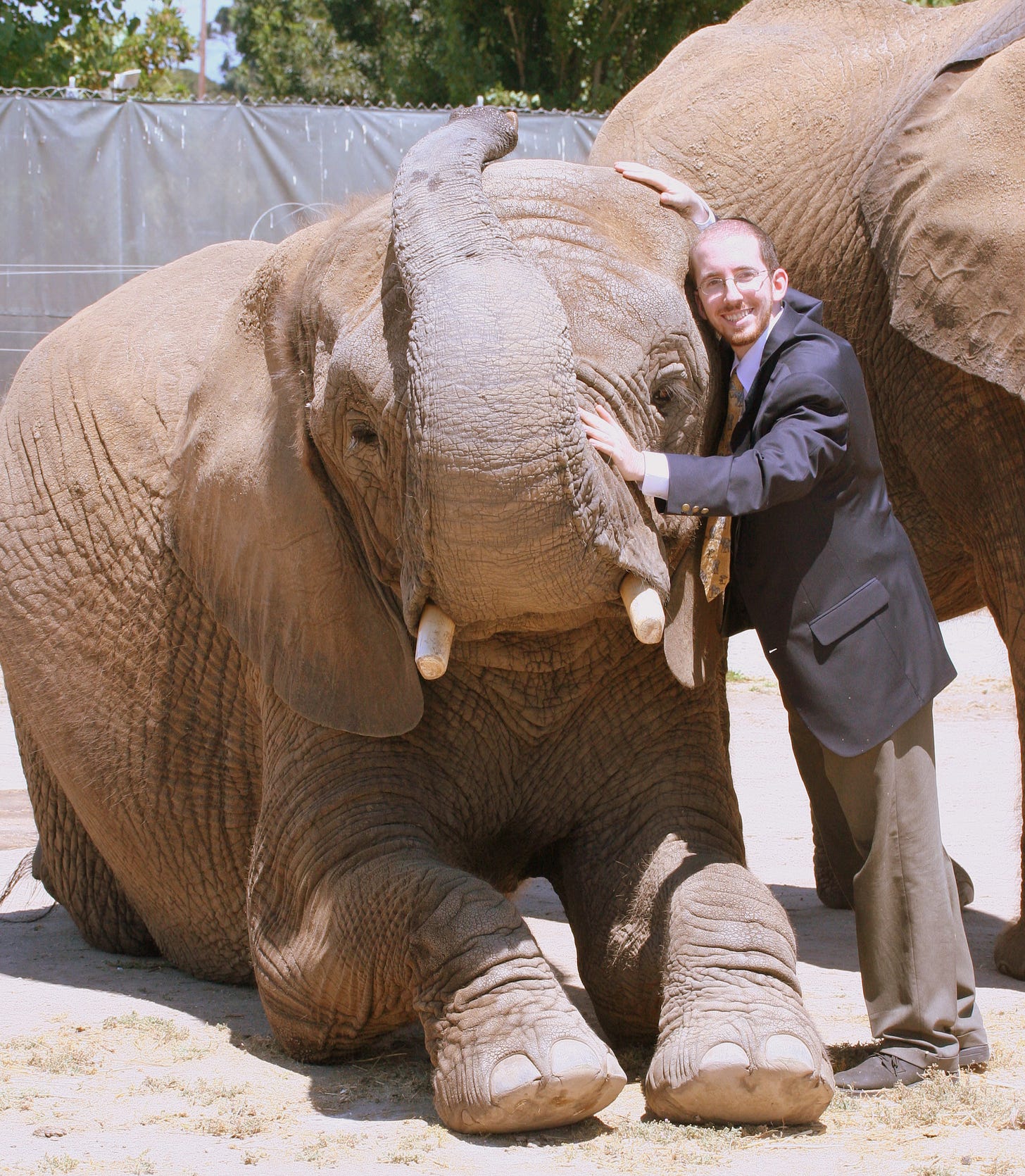Have You Ever Said These Brachot?
The blessings that are said on elephants and parrots and more
Over Shavuot I was learning Rav Eliezer Melamad’s “Harchavot” (In-Depth Studies) of his laws of brachot and I came across something very interesting indeed. And it proved to be relevant in the part of Southeast Asia where I am currently visiting en route to a speaking engagement.
Did you know that there are brachot that are recited upon seeing various animals? If you see an elephant or monkey, it’s Baruch meshaneh habriyot, Blessed is the One Who varies His creations. And if you see a beautiful creature - be it animal, plant, or even human - it’s Baruch shekacha lo b’olamo, Blessed is the One who has such things in His world.
What counts as “beautiful creature”? Not many halachic authorities have weighed in on this. But Rav Ovadya Yosef gave the example of a beautiful parrot. Accordingly, in the Hall of Wonders at the Biblical Museum of Natural History, we have a beautiful parrot on display, with the bracha on a sign next to the exhibit. Our parrot has gotten so used to hearing “Baruch shekacha lo b’olamo” that he nows says it himself! (Tip to visitors: if you want to get him to say it, recite the bracha in front of him, and then turn and walk away - he will likely call it out after you.)
But Rav Melamed demonstrates from various sources that the beracha is not restricted to a particularly beautiful unusual species. Rather, it was designed to be recited even upon a particularly beautiful individual of a common species. It is to be recited upon an especially beautiful horse, even a beautiful dog! When you see that extraordinary Clydesdale horse, or that amazing chow chow dog, you don’t just say “wow!” - you make it a religious experience, and express appreciation to the One who created a world with such beauty in it.
Many halachic authorities say that nowadays, such berachot are recited without Shem u’Malchut, either since we do not know exactly what Chazal had in mind (which is unrealistic - we certainly see more wonderful creatures than they ever saw), or because we are desensitized and do not feel the same degree of wonder that people used to feel (which is definitely true). Rav Melamed, however, provides a wealth of arguments that the beracha is to be recited with Shem u’malchut, just as Chazal enacted.
This is something which I have learned to very much appreciate about the Dati-Leumi approach to Torah in general, and that of Rav Melamed in particular. It’s very much about not just learning Torah, but living Torah; putting it into practice in the real world, just as originally intended.
Meanwhile, Rav Melamed has an interesting insight. In discussing which sights in nature qualify for this blessing, he reasons that it applies to anything which arouses a sense of wonder. And he then says that anything in nature which people make a point of going specifically to see would fit into that category. He notes that this does not even need to be a specific beautiful animal - it could be a remarkable natural phenomenon, such as a spectacular migration.
I had that in mind two hours ago, when I travelled to see an extraordinary sight: two million of a certain species of creature, which passed in front of me over a period of about twenty minutes. (Actually, one was killed before my eyes, so I guess only 1,999,999 passed in front of me.) It wasn’t an aquatic creature, since I was in the jungle. Nor was it an insect or bird. It was a mammal. Can you guess what it was?




“This is something which I have learned to very much appreciate about the Dati-Leumi approach to Torah in general, and that of Rav Melamed in particular. It’s very much about not just learning Torah, but living Torah; putting it into practice in the real world, just as originally intended.”
There is always the option of learning Torah AND living Torah, which is best exemplified by the Chareidy communities who take Halacha seriously. They take all sorts of halachos the DL community has decided is out of vogue, and put them into practice in the real world - just as originally intended.
I bet you saw two million bats.